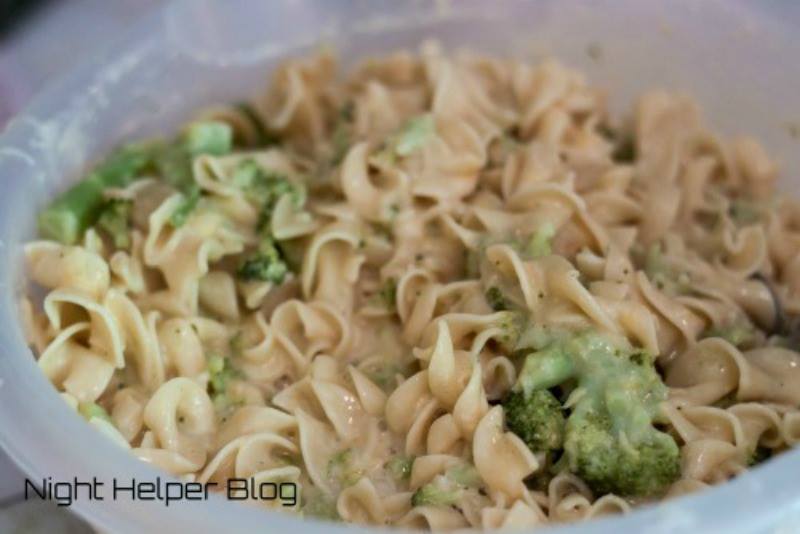What are Signs of a Leaky Gut? Should I Worry?
Maintaining good gut health is essential to keeping up your health overall. But what if you start to notice that your gastrointestinal system isn’t feeling as good as it should? You may be suffering from leaky gut syndrome. Read on to unpack what the main leaky gut symptoms are, and what you can do to support your gut health.
Contents
What is Leaky Gut Syndrome?
The gut is a catch-all term for the essential organs that make up the gastrointestinal tract: the mouth, esophagus, stomach, intestines, rectum, and anus. In order to properly intake food, and ensure that your body gets the nutrients it needs, you want your gut to be healthy. Much of taking care of your gut has to do with the upkeep of the mucus-based lining that coats the gastrointestinal organs.
When the lining of the gut is damaged or starts to break down, you can find yourself suffering from a leaky gut. Much like a crack in the wall of a house, when the cells that protect your digestive organs’ lining break down, it’s possible that toxins, bacteria, and other harmful particles can make their way into the gut, and cause a variety of problems. These problems are all signs of leaky gut syndrome.
What are the Causes of Leaky Gut Syndrome?
There are a number of potential factors that can impact your digestive health and cause leaky gut syndrome. Some of the most common causes of a leaky gut are:
- Eating a Diet Lacking in Essential Nutrients – One of the main causes of digestive tract and gut damage is eating a poor diet. For instance, diets that are particularly high in sugary, processed foods and carbohydrates have shown to have a tie to leaky gut symptoms. Additionally, diets lacking in proper protein intake can cause a leaky gut too, as protein contains essential amino acids needed to maintain the mucus walls in the gut.
- Imbalance of Gut Bacteria – Our guts contain a variety of bacteria within them, some are good, and some are bad. In a healthy gut, good and bad bacterias are well balanced. However, when the good-to-bad bacteria ratio becomes imbalanced, it can lead to digestive issues that trigger leaky gut syndrome.
- Suffering from Chronic Stress – Whether mental or physical in nature, when the body is subject to chronic stress, it raises rates of cortisol and inflammation. This inflammation reduces the efficacy of the immune system, and weakens the digestive system’s ability to rid itself of toxins and bacteria, making it susceptible to leaky gut syndrome.
- Antibiotics – While antibiotics are essential for wiping out pathogenic bacterial infections in the body, they don’t target specific bacteria. As such, when people take antibiotics, they often end up ridding their guts of good bacteria as well as the bad, causing an imbalance that can lead to leaky gut syndrome.
- Toxins – Our bodies are exposed to thousands of toxins a day, and our gut can be especially impacted by them. Pesticides, food preservatives, and contaminated tap water are some of the main sources of toxins that can damage the digestive lining and cause leaky gut syndrome.
Leaky Gut Symptoms
Leaky gut syndrome can present a vast array of symptoms. Some of the most common ones include:
- Chronic constipation and diarrhea
- Fatigue
- Indigestion, gas, and bloating
- Nutrient deficiencies (particularly low vitamin and mineral levels)
- Joint pain
- Hormonal imbalances
- Food intolerances (typically dairy and wheat products)
- Headaches
- Skin issues (including allergy-induced rashes and eczema)
How to Reduce Symptoms of a Leaky Gut
Luckily, there are a number of lifestyle and dietary changes you can make to reduce the symptoms of leaky gut syndrome:
- Add a Probiotic Supplement to Your Daily Routine – Probiotic supplements contain a blend of essential good bacterial strains that the gut needs to function. By taking a probiotic supplement, you can help to balance the levels of good and bad bacteria in your gut, and support the alleviation of the symptoms of leaky gut syndrome. However, it’s also important to be aware of any potential side effects when introducing new supplements. For example, reviewing total restore efectos secundarios can help you understand any possible reactions before adding it to your routine.
- Eat a Variety of Fermented Foods – Fermented foods contain “live” healthy bacteria that aid in gut health. Eating foods like kimchi, kefir, sauerkraut, and kombucha can support a healthy gut lining by increasing the good bacteria in the gut.
- Avoid Inflammatory Foods – When trying to reduce the symptoms of leaky gut syndrome, it’s best to avoid eating foods that have shown to cause inflammation in the digestive tract. This includes: gluten, dairy, refined sugars, coffee, and alcohol. Instead, try to center your meals around whole fruits and vegetables, meats high in protein and healthy fat, and fiber.
Struggling with the symptoms of a leaky gut can be difficult. But you don’t need to worry: by making a few key lifestyle changes, like taking a daily probiotic and monitoring your intake of inflammatory foods, you can get your gut health back on track.




